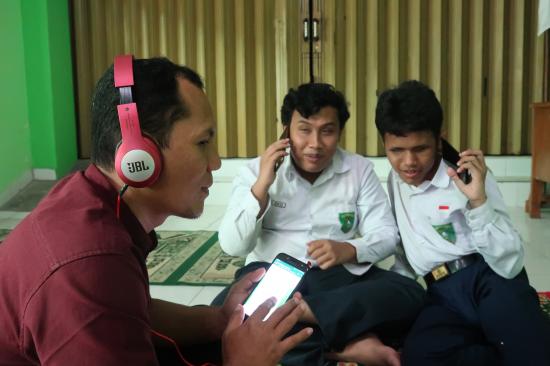
Millions of people are exposed to the deadly risk of tsunami, particularly in the Asia Pacific region. 15 years ago, the world was shocked by the mighty wave that devastated numerous areas adjoining the Indian Ocean in 2004. Another strong tsunami destroyed a major city in Japan in 2011. Just last year, two tsunamis crushed several areas of the Indonesian archipelago. These events have claimed hundreds of thousands of lives and jeopardized the results of painstaking social economic development processes.
World Tsunami Awareness Day (Tsunami Day) is consequently an important juncture in strengthening community resilience towards this fatal hazard. Started in 2016 by the UN General Assembly, the observance of Tsunami Day is every November 5th. Commemoration of Tsunami Day serves as a call for cooperation in undertaking preparedness measures to reduce the underlying risks of tsunamis. Based on the data released in 2014 by the UNESCAP, mortality rates of persons with disabilities were 2 to 4 times higher than those without disabilities in times of disasters. Factors behind these unequal numbers are varied, including discrimination, exclusion, inaccessible infrastructures, and countless others. Hence, circulating tsunami preparedness messages to the disability community is even more pressing, considering the disproportionate risk of disaster faced by persons with disabilities.
Unfortunately, most information on disaster preparedness that is widely available in major media platforms is not accessible to persons with disabilities, especially for those with vision difficulties. The urgent needs of providing accessible information and distributing it them to the wider disability community inspired the collaboration between ASB and the UN Office for Disaster Risk Reduction (UNDRR) Asia and the Pacific. Earlier this year, we created a set of learning materials on multi-hazard disaster preparedness, which are now available publicly under the following link . These educational media provide practical guidance for persons with mobility, hearing, intelectual, and visual limitations, as well as their caretakers. They are made available in two forms -illustrated poster and podcast (audio) – which cover five main hazards in the Asia and the Pacific region, including tsunamis.
Commemorating this year’s Tsunami Day, ASB joined the students of MTSLB/A Yaketunis Yogyakarta, a special school for students with visual limitations. ASB collaborated with local disabled people’s organizations (DPOs), namely Pertuni Sleman (Indonesian Union for the Blind) and Difagana DIY, to facilitate learning processes with the school children. Using the aforementioned audio materials, students learned about characteristics of various natural hazards and how to be prepared. Before they listened to the podcasts, students already knew that if a tsunami happens they would need to evacuate, but they did not know where to go. They were also familiar with the term ‘tsunami’ but were not aware of the signs indicating a likely occurrence or how to prepare themselves.
After the students learned from the audio materials, they discovered specific information on key steps to take in order to be prepared for tsunami. Aida told ASB, “If a tsunami happens, we have to stay away from the beach and evacuate to a hill or higher place.” Students also learned about the signals of tsunami occurrence, “the signs (indicating tsunami) are earthquake, receded sea level, lots of stranded fish along the beach, strong smell of salty air, and unusual, loud, roaring sounds,” said Ikhsanudin, another student who participated in the class.
Everyone, including persons with disabilities, has the right to access information on disaster preparedness and further reduce the risks of disasters they are facing. Ensuring the availability of accessible information is the first key step toward building community resilience and saving additional lives in times of disasters.
Tsunamis have no season. Let’s be prepared!
(Rizma Kristiana, edit: Nico Hybbeneth)

